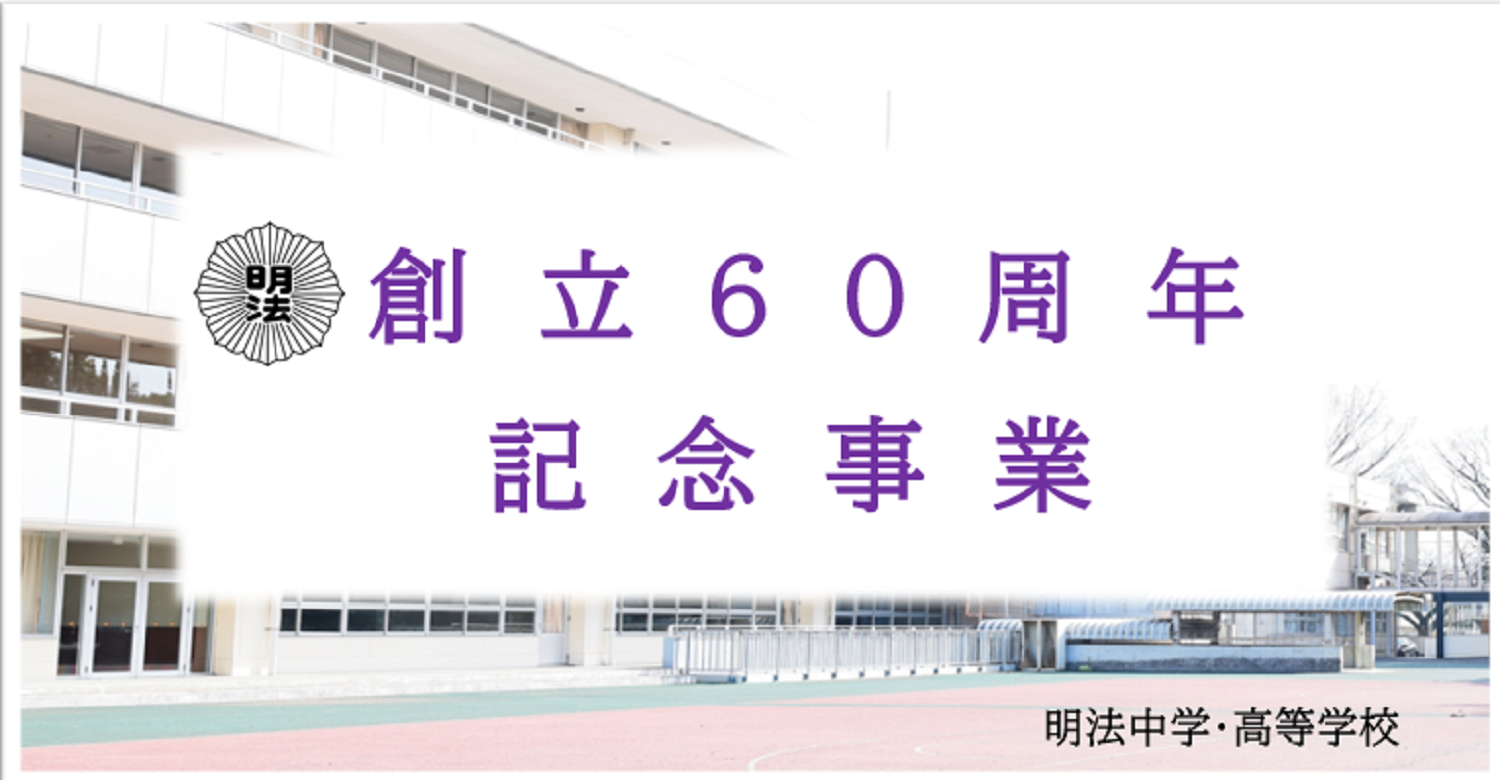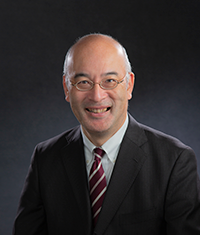
Greetings
In 1964, Meiho Junior and Senior High School opened in the northern Tama area to create an ideal educational environment for its students.
The school continues to aim for this goal by developing learners who value gratitude, respect diverse values, and have enhanced empathy. In doing so, our learners can become citizens who live for themselves and others.
In addition, Meiho focuses on empowering students to survive in the uncertain future by developing academic, critical thinking, communication, and creative skills that are prerequisites for their future lives.
To do this, the school and its faculty provide maximum support so learners can achieve self-actualization according to their abilities and aptitudes through friendly competition with peers in various school events and club activities.
Principal Okada
Meiho, a private school in western Tokyo, has graduated more than 7,500 students and continues to serve its local community by hosting cultural and sports events. It currently serves over 600 students from 7th to 12th grade.
Curriculum at Meiho
focuses on the following four areas:
Creativity
Instilling students with a creativeness that is centered on strengthening human relationships
Experiences
Providing students with experience-based learning opportunities to provide meaning to, and advance their studies
Global participation
Raising students' awareness of the international community and ways to both benefit from and contribute to it
College preparation
Delivering students with a premier preparatory experience that allows them to reach their ambitious academic goals
The four pillars reflect the school's mission statement and are established throughout Meiho's six-year curriculum. They also serve as the educational philosophy behind programs such as Science Global Endeavors (SGE) and Global Studies Program (GSP).
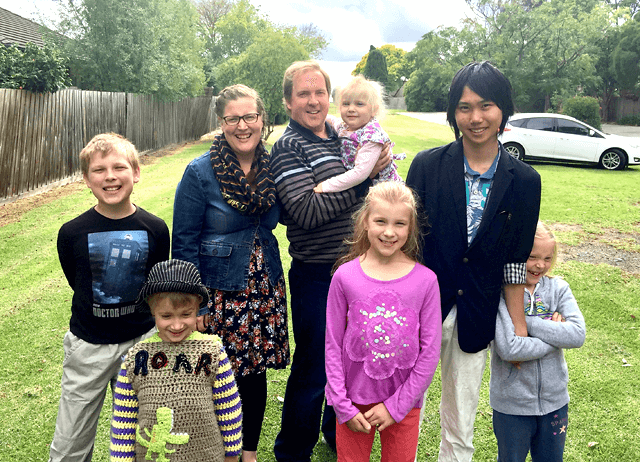
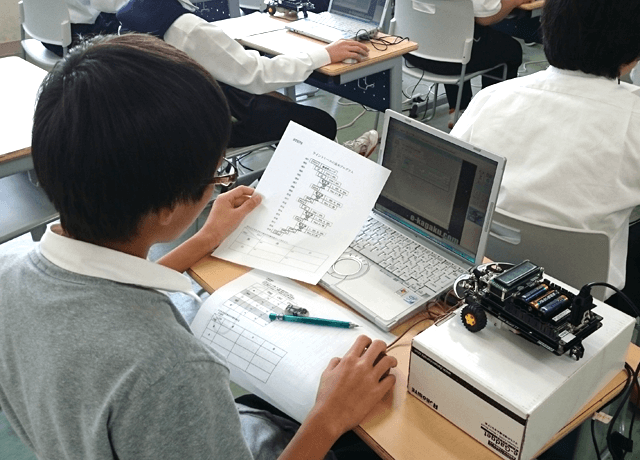

Department of 21st Century Learning
In order to advance the four pillars of Meiho's educational philosophy, the Department of 21st Century Learning was established in 2017. Teachers from across the academic departments work together to develop high quality learning activities, lessons, and curriculum with a focus on building 21st century skills. Due to these teachers'efforts and commitment, the “Four Cs” of creativity, critical thinking, communication, and collaboration can be found throughout the curriculum.
Example Lessons from Academic Departments
| Department | Lesson |
|---|---|
| Social Studies | Is that true? : Deductive and investigative reasoning for media literacy |
| Science | Is the earth really round? : Finding evidence of commonly held beliefs |
| English | Spicing up the text! : Adding original lines to model dialogues |
| P.E. | Speed up! : Learning the importance of collaborative planning through a dribbling relay race |
| Mathematics | Collaborate to equate! : Creating original multi-answer equations |
| Art | Our creations! : Learning creativity through a collaborative art project |
Other programs headed up by the Department of 21st Century Learning
- ICT infrastructure and implementation (Google Chrome Books, Google Education, G Suite, etc.)
- Global Studies Program (GSP), including study abroad
- Homestay and language excursion programs
- Pathway to foreign universities
- Hawai'i-Japan 21st Century Education Alliance
- Volunteer and service opportunities
Science Global Endeavors (SGE) -STEAM Education-
SGE is a special science focus program that specializes in hands-on learning and collaborative projects. Students in SGE are self-motivated and eager to satisfy their curiosity of the world. The aim is an academically well-rounded student who will become a world leader in the sciences.
Fundamental Courses
- Robotics
- Numerical analysis (GPS, rocketry)
- Statistical processing & programming
- Presentation skills
- Blind communication skills
Special Courses
- Debate
- Medicine (by Dr. Nabuchi, heart surgeon)
- Rakugo (traditional Japanese comedic storytelling)
- Guitar
- Plastic bottle rockets by JAXA lecturer
SGE students travel throughout Japan to participate in robotics competitions, debate tournaments, and to do field work. In junior high, they visit peers in Taiwan and in senior high, they visit Singapore.
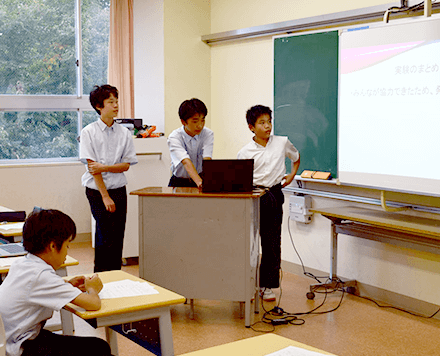
Programming
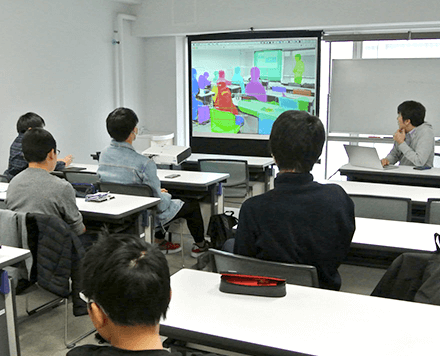
AI technology special lecture
(in Tokyo Univ.)
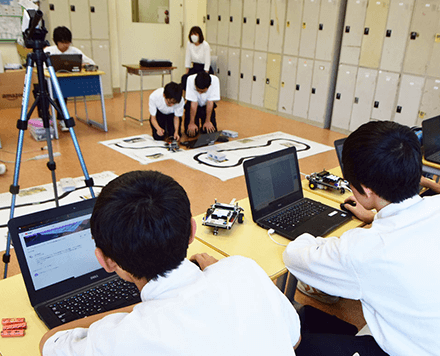
Robotics Competition
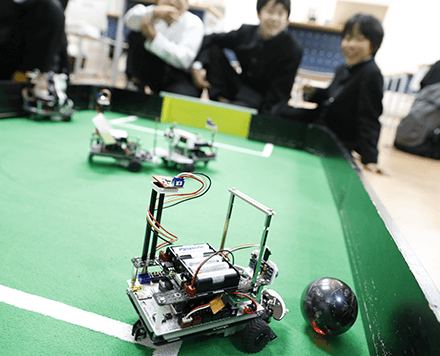
Robotics Competition
Global Studies Program (GSP)
To provide students with experience abroad, Meiho has a substantial short-term program. During the winter term of the 10th grade, participating students spend three months in Australia taking mainstream courses. Upon returning, students put together a written compilation of their experiences as well as give presentations in front of an audience of peers and parents.
Many students who participate in GSP go on to take our 21st Century elective course, which is a content-based social studies class conducted in English.
In this course, students focus on current events and world issues, with an emphasis on developing critical thinking skills and win-win solutions to problems affecting the world. They interact with peers abroad and at debate and discussion events.
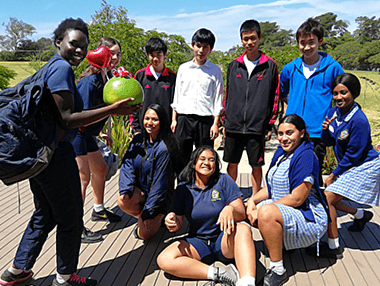
Study Abroad
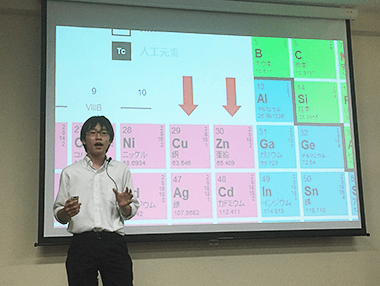
Study Abroad Presentations
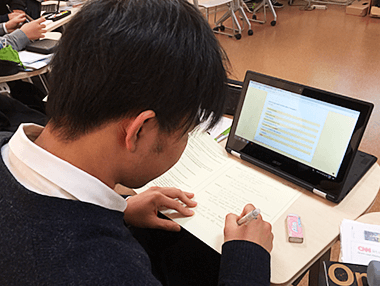
IT Culural Exchange
Academic Year
Meiho starts its academic year in April and finishes in March. There are three terms and optional courses offered during summer, winter, and spring vacations.
During vacations, there are events such as homestays abroad (Australia, New Zealand, U.S.A.), club camps, and debate tournaments. Meiho has 25 sports and culture clubs, which are active throughout the year.
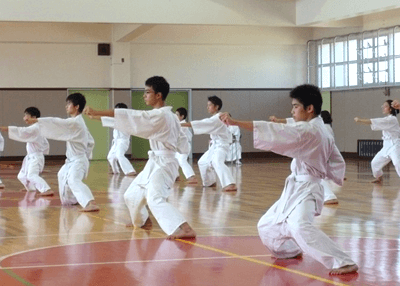
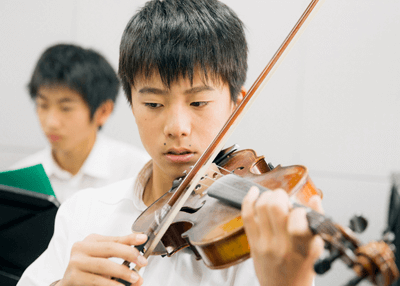
Spring Term
- Academic year begins
- Orientation camps
- Sports Festival
- Fieldwork (geography, etc.)
- Okinawa trip (11th grade)
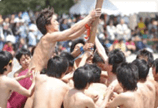
Sports Festival
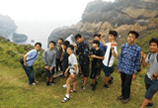
Fieldwork
Fall Term
- School Festival
- Marathon
- Kyoto trip (9th grade)
- Taiwan trip (9th grade SGE)
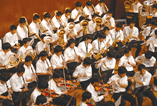
Jr. High Orchestra
Winter Term
- Student government elections
- GSP study abroad (10th graders)
- Graduation
Campus & Facilities
Meiho is situated in a quiet neighborhood in western Tokyo and offers one of the largest campuses and playing fields in the area. Students can utilize the Olympic size swimming pool, perform with their band in the school auditorium, and enjoy the outdoor basketball or soccer field during lunch. Meiho also offers a new dormitory, Meiho House, that can house up to forty students.
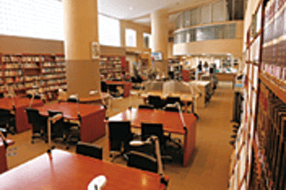
School Library
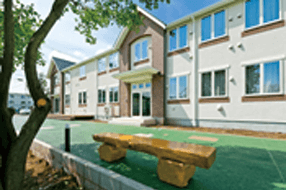
Meiho House
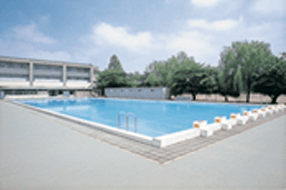
Olympic-size Swimming Pool
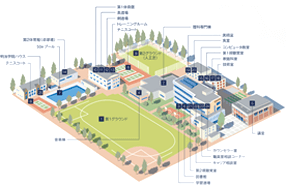
Campus Map
Volunteer and Service Activities
To fulfill the mission statement, Meiho provides students with, and encourages them to take part in volunteer activities both in Japan and abroad. The student body government works with an NGO in Cambodia to deliver school supplies and Meiho students can spend a summer at a school there volunteering as a teacher.
Junior high school students visit local nursery schools and nursing homes as volunteers.
Their interactions with young children and the elderly encourages their empathy and understanding of the world.
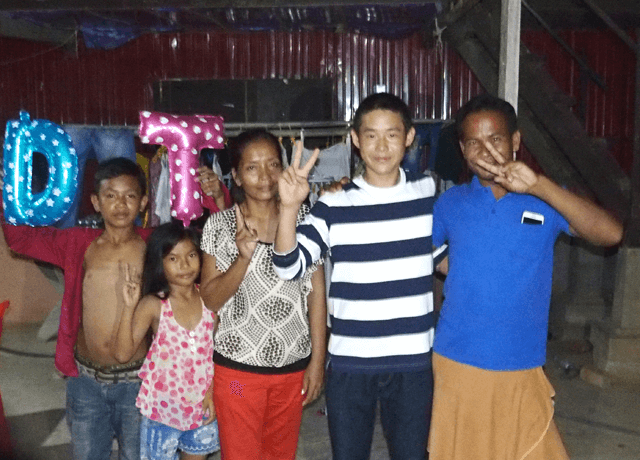
Meiho Student with Host Family
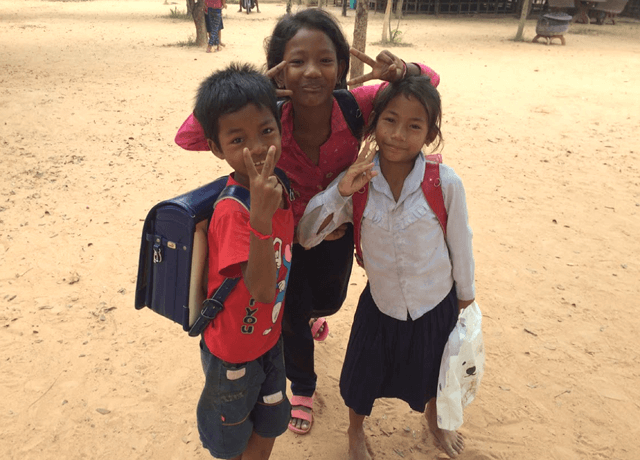
Local School Children
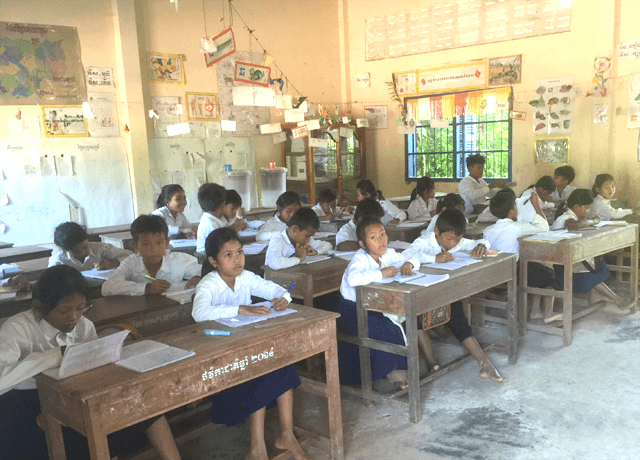
Classroom in Cambodia
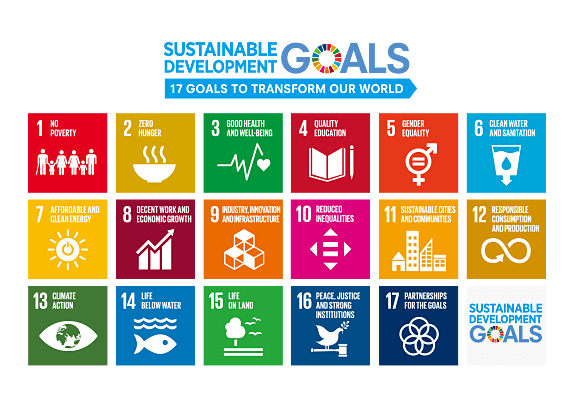
SDGs Education





